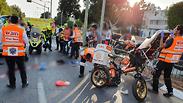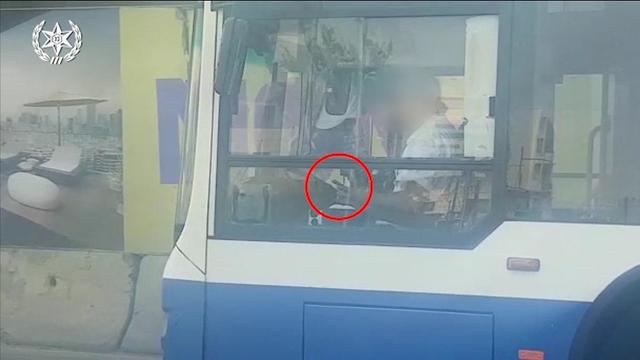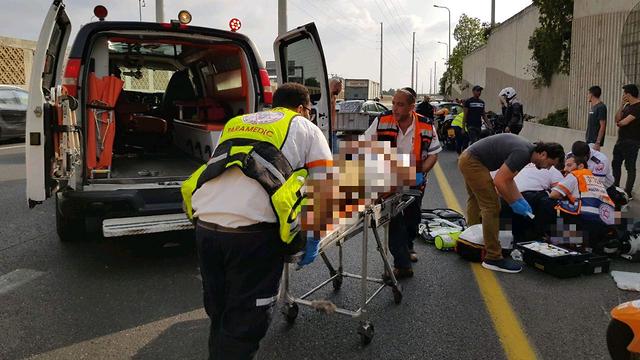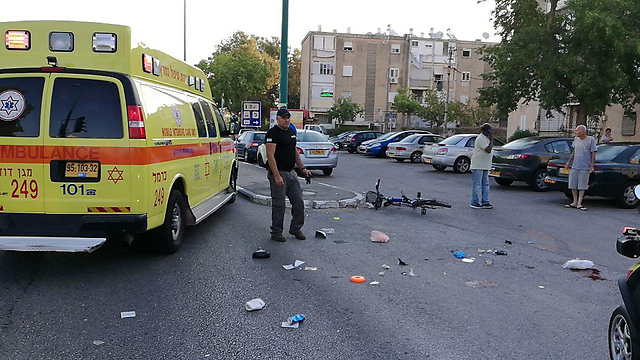
'Israeli drivers lack patience and discipline'
Since the start of 2019, there have been more deaths on the roads in Israel than there were for whole of the year before; Rachel Tevet-Wiesel, the head of the National Road Safety Authority, has a lot to say about how to solve this ongoing problem
Since the start of 2019, 275 people have died on Israel's roads. Last month ended in a weekend of nine vehicular deaths, one of the deadliest weekends on the roads of the past few years.
This is a steep climb from 2018, which ended with a sense of optimism and a relative low number of fatalities. Unfortunately, as in former years, this optimism was somewhat premature.
According to Rachel Tevet-Wiesel, the head of the National Road Safety Authority, the problems lie across the board, including a government that hasn't had a special hearing on the issue since November 2017, a lack of law enforcement, poor parenting and drivers who lack patience and discipline.
She talked to Ynet about her concerns regarding road safety in Israel.
For the conversations about infrastructure, the number of road deaths keeps increasing. How do you explain that?
RT: If we look at the list of casualties, we can see several very disturbing facts. Bikes and motorized scooters are only permitted for use from age 16, only on designated bike lanes and onl wearing a helmet.
But when there is no enforcement, what is permitted and not permitted becomes meaningless.
RT: There is a matter of personal and parental responsibility, our responsibility as drivers not to text while driving, responsibility as parents that children under the age of 16 aren't on their bikes without a helmet.
There are many things we don't do enough. Most of (the safety measures) are in our hands.
Some instances have less to do with parental responsibility. As a professional, what are the factors that lead to an increase or decrease in the number of vehicular deaths?
RT: You were right to say decrease. This year has been deadlier than the last, but less so than previous years.
The factors? First, infrastructure, enforcement and a driving culture that can be controlled through public relations and education.
A striking example is the 50 motorcyclists who have been killed on the roads since the start of the year - 10 more than last year. Most of these accidents didn't involve another vehicle, so that doesn't have to do with infrastructure, but rather with behavior."
We need to talk about budgets too. The last time we saw a government debate about the subject was in November 2017. Road safety budgets have also been reduced from year to year, instead of increased.
Is the state is disregarding this matter?
RT: There is a certain level of erosion. There was a decrease in deaths last year and we were happy about that, but it doesn't work that way. A year and a half ago, the government decided to give NIS 5 million to local Arab municipalities that have didn't have a road signal system, (but) that money didn't arrive. At the end of the day, you have to know how to invest in those places.
Israel has state of the art roads; why hasn't that helped decrease the number of casualties?
RT: It did help, since 2012 there has been a decrease in number of accidents.
But that's not enough. I guess what also helped was infrastructure and enforcement.

So, the main problem is the road culture?
RT: In a way - yes. Look how many people text while driving. When you text while driving, it increases your chances of dying in a car accident by tenfold. But people keep texting.
What are you doing at the NRSA to change the road culture?
RT: First, we are always present at public relation and education events in local municipalities.
But if they want to take it a step further, we need budgets. There is no way around that.
How is the Israeli driver different from the European driver?
RT: They are less disciplined, less patient, less courteous and messing with their phones constantly.
Other countries have reduced the speed limit in urban areas to just 30 kmh - can you imagine what kind of an uproar there would be here if we did the same?
It's just not going to happen. We are just less disciplined - parents keep less of an eye on their children.
Is the Israeli driver dangerous?
RT: Not dangerous, but rather reckless. A driver needs to follow the law and take responsibility for themselves, their kids and their environment.













